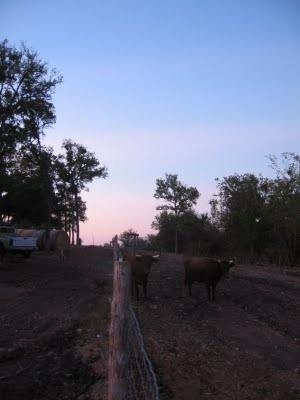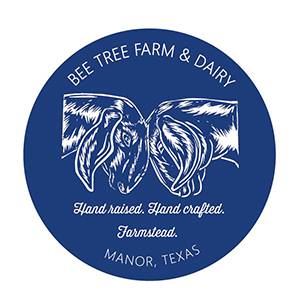Piss and Vinegar
A few weeks ago Jer rented that monster, Bertha II, which he subsequently fell in love with and talked about wistfully for days after she was returned. As I mentioned before, she successfully bulldozed what needed clearing and smoothed what was impassable. In the process of all this dirt turning, a new bounty of Indian tools emerged from the ground, as I suspected they would since hundreds already cover the property. The largest tools: bone crushers, hide scrapers, diggers, and spear points, seem regurgitated from the ground everywhere. I trip on them each time I take a walk. At first it was fascinating and then they became so ubiquitous that I stopped paying attention. Yea, yea, yea. There were Indians here. They made tools and did stuff. Big deal.

So I’ve been thinking a lot about people that make their minds up about things, hold tight and do what they’ve set out to accomplish. During the early-mid 1800’s thousands of Americans spilled across the northeastern Texas border in wagons filled with paltry resources, staked a claim, and clawed out an existence. The Spanish and Mexicans came before this. This was more than felling trees, building cabins, and planting corn. This was also stepping directly onto soil swarming with Native Americans who’s culture centered on war, territory, and pride. I think a lot now about this collision of forces that literally occurred on dirt where we’ve planted the four corners of our house. Different people all together but still filled with the same unbridled tenacity that makes you dig your heels in. Remnants of these folks are everywhere. The young forest on our front 5 acres indicates someone was here before and cleared the ancient woods some time ago to make way for..something. Crops? Cattle? The tools that litter the ground are evidence that the Tonkawa walked every inch, carved heavy, rough tools for food preparation, and then dropped the stone scrapers before moving along. Their nomadic lifestyle didn’t allow for packing heavy. And in the midst of all this were the Comanches that would swoop in from the west, terrorizing the settlers and the Tonkawa, flexing their culture’s war-based muscles, and re-asserting themselves as the true rulers of Texas. Again and again. In an old cemetery across our road sits a crooked headstone with the words scratched onto its face, “Killed by Indians.”

It’s a bad time to break ground. I cringe for the electric company staff who are scheduled to set our poles and run the lines next week. During Jer’s epic week of clearing, I worried about heatstroke every afternoon when I knew he was piling logs and pushing dirt under the sun. Not that we’d ever be driven to conquer land in brutal territory, but I’ve noticed how distinctly we fall in a category when it comes to tenacity. Despite the weather, despite any level of certainty about what exactly we’re doing out there, we’re moving forward. Our reasons are vastly different from those of the original settlers and Indians, I’m sure. But on some level, it’s the same primal desire to stake a claim and live off the land of our piss-and-vinegar forebears. I’ve made piles of the Indian tools under various trees throughout the property. Some I’ll keep but most I’ll scatter again onto the dirt as a burial – or memorial. This land isn’t really ours, it’s just a place we’ve borrowed.



2 Comments
No Name Farm/Ranch
August 11, 20114:16 am
I love that!
Brett
August 9, 20119:06 pm
Nice! Ironically I read an Indian proverb the other day that reads almost identically to your last words, “We did not inherit this land, we borrowed it from our children.”